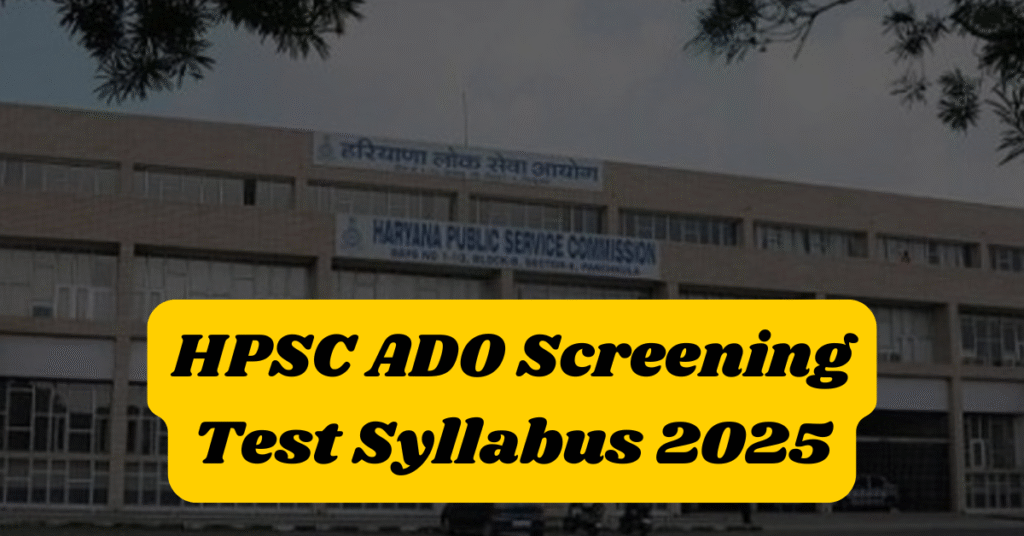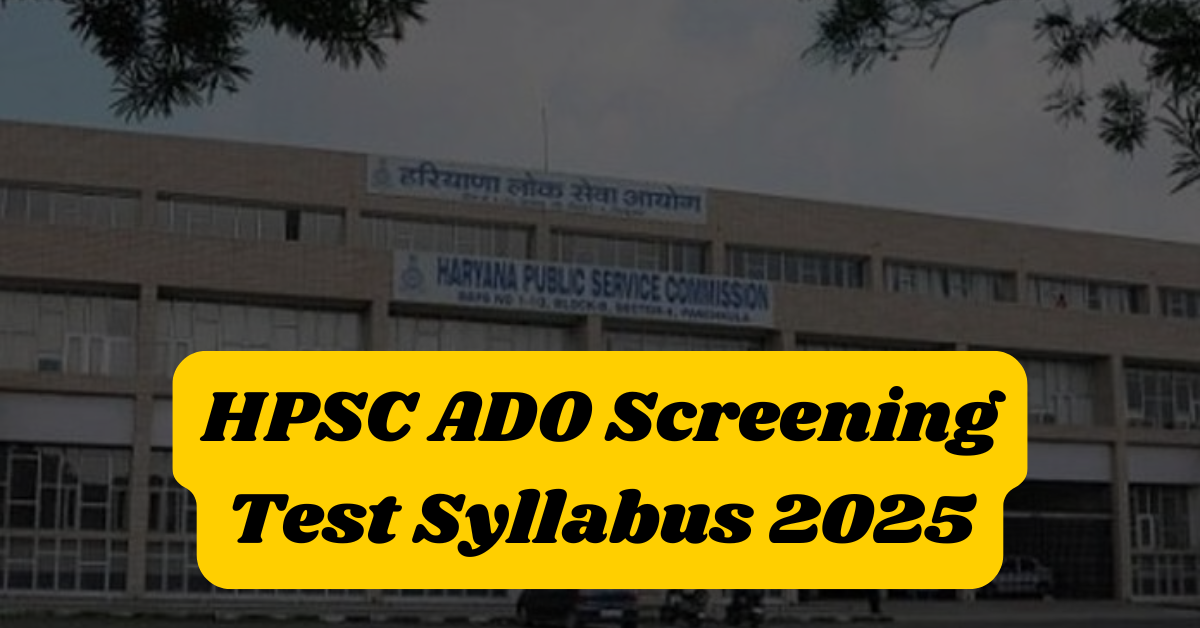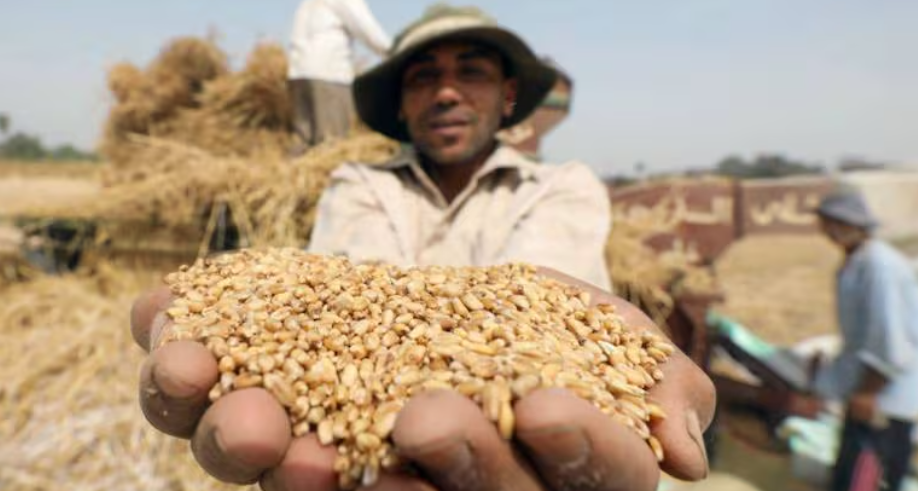Preparing for the Haryana Public Service Commission (HPSC) Agricultural Development Officer (ADO) Screening Test 2025? Based on the patterns observed in the HDO/DHO Combined Screening Test 2023 (Advt. No. 21/2023 & 12/2023) and the ADO 2022 exam, this guide provides an assumed syllabus to help you excel. Designed for students, this post covers the exam pattern, key topics, and preparation tips to boost your success!
Disclaimer: This syllabus is an assumption based on recent HPSC exam patterns (ADO 2022, PGT 2023, HDO/DHO 2023). Always verify with the official HPSC website (www.hpsc.gov.in) for the confirmed syllabus.
HPSC ADO Screening Test: Exam Pattern (Assumed)
Drawing from the HDO/DHO 2023 and ADO 2022 patterns, the Screening Test is likely to follow this structure:
- Total Questions: 100 Multiple Choice Questions (MCQs)
- Total Marks: 100 (1 mark per question)
- Duration: 2 hours
- Marking Scheme:
- Correct answer: +1 mark
- Wrong answer: -0.25 marks
- Unattempted question (if not marked as “E – Question not Attempted”): -0.25 marks
- Option E allows penalty-free skipping if selected
- Language: English only (consistent with ADO 2022 and HDO/DHO 2023)
- Qualifying Marks: Likely 25% (25 marks) for all categories, based on PGT 2023
- Purpose: Shortlist candidates (likely 4 times the advertised posts) for the Subject Knowledge Test or interview
Assumed Syllabus for HPSC ADO Screening Test 2025
Based on the HDO/DHO 2023 paper (75% horticulture, 20% general studies, 5% statistics) and ADO 2022 trends, the syllabus is expected to cover General Studies, Agriculture/Horticulture, and Basic Statistics. Below is the detailed breakdown:
1. General Awareness (15–20 questions)
- Topics:
- Current Affairs: National and international events, government schemes (e.g., Pradhan Mantri Shram Yogi Maandhan Yojana), international collaborations (e.g., NISAR, QUAD, G-20).
- Haryana-Specific Knowledge: History (e.g., ancient names like Brahmavarta), geography (e.g., Shivalik range, alluvial plains), polity (e.g., unicameral legislature), economy, and festivals (e.g., Baisakhi).
- General Knowledge: Indian history, geography, polity, economy, science, technology, and environmental issues.
- Agriculture-Related Policies: Schemes like PM-KISAN, Haryana’s Horticulture Vision 2030.
- Weightage: ~15–20% of the paper.
- Example Questions (from HDO/DHO 2023):
- Q1: Statements on government schemes.
- Q16–20: Haryana’s historical names, physiography, legislature, and agricultural prosperity.
2. Logical Reasoning and General Mental Ability (10–15 questions)
- Topics:
- Number series, coding-decoding, analogies.
- Blood relations, direction sense, seating arrangements.
- Puzzles, syllogisms, and statement-conclusion questions.
- Weightage: ~10–15% of the paper.
- Example Questions (from HDO/DHO 2023):
- Q7: Coding-decoding (GAME as HZND).
- Q12: Direction sense (Rohan’s movement).
3. Basic Numeracy and Data Interpretation (10–15 questions)
- Topics:
- Arithmetic: Percentages, ratios, averages, profit and loss, time-speed-distance, work.
- Number systems and simplification.
- Data interpretation: Tables, bar graphs, pie charts, data sufficiency.
- Decision-making scenarios (e.g., investment choices).
- Weightage: ~10–15% of the paper.
- Example Questions (from HDO/DHO 2023):
- Q13: Investment decision-making.
- Q15: Percentage calculations from tabular data.
4. Agriculture and Horticulture (50–60 questions)
- Topics:
- Fundamentals of Agronomy: Crop production, cropping systems, irrigation, and weed management.
- Horticulture: Fruit and vegetable crops, varieties (e.g., Thompson Seedless grape, Parbhani Kranti okra), physiological disorders (e.g., mango malformation, pithiness in radish), propagation (e.g., grafting, tissue culture), and post-harvest techniques (e.g., Zero Energy Cool Chamber, canning).
- Soil Science: Soil types, fertility, nutrient management, and conservation.
- Pest and Disease Management: Diagnosis, integrated pest management (IPM), biological control, and diseases (e.g., chili leaf curl, cumin Alternaria).
- Agricultural Extension: Role of Krishi Vigyan Kendras (KVKs), extension methods, and rural development programs.
- Haryana’s Agriculture: Major crops (wheat, rice, mustard), schemes, and challenges.
- Biotechnology: Transgenic crops (e.g., SunUp papaya), tissue culture, and gene silencing.
- Weightage: ~50–60% of the paper, slightly less specialized than HDO/DHO 2023 (75% horticulture).
- Example Questions (from HDO/DHO 2023):
- Q21: C4 fruit crop (Date palm).
- Q41: Zero Energy Cool Chamber developer.
- Q54: Transgenic fruit crop (SunUp papaya).
5. Basic Statistics (5–10 questions)
- Topics:
- Statistical methods: t-test, correlation coefficient, regression.
- Experimental design: Replication, local control, completely randomized design (CRD).
- Data transformations: Square root, logarithmic, angular.
- Weightage: ~5–10% of the paper.
- Example Questions (from HDO/DHO 2023):
- Q96: t-test for correlation significance.
- Q99: Data transformations for statistical analysis.
6. Educational Psychology and Pedagogy (5–10 questions)
- Topics:
- Learning theories and teaching methods.
- Role of extension workers in agriculture.
- Communication skills for rural development and training programs.
- Weightage: ~5–10% of the paper (based on PGT 2023 inclusion).
Preparation Tips for HPSC ADO Screening Test 2025
- Master General Studies:
- Read newspapers (e.g., The Hindu) for current affairs and agriculture-related news.
- Study Know Your State: Haryana (Arihant) for Haryana-specific topics.
- Practice reasoning and numeracy with R.S. Aggarwal’s books or Arihant’s objective series.
- Deep Dive into Agriculture/Horticulture:
- Use B.Sc. (Agriculture) textbooks like Fundamentals of Agriculture (Arun Katyayan) and Horticulture at a Glance (Salaria and Salaria).
- Focus on crop varieties, disorders, propagation, and pest management.
- Study Haryana’s agricultural profile (e.g., major crops, KVKs, schemes).
- Brush Up on Statistics:
- Refer to Agricultural Statistics (R. Rangaswamy) for experimental design and data transformations.
- Practice basic statistical concepts relevant to field trials.
- Strategize for Negative Marking:
- Practice solving 100 MCQs in 2 hours to improve speed and accuracy.
- Use the “E – Question not Attempted” option to skip uncertain questions without penalty.
- Solve previous HPSC papers (e.g., ADO 2022, HDO/DHO 2023) and mock tests.
- Stay Updated:
- Monitor www.hpsc.gov.in for official notifications and syllabus updates.
- Follow agriculture-related developments in Haryana (e.g., Horticulture Vision 2030).
Why Prepare with This Syllabus?
This assumed syllabus aligns with the HDO/DHO 2023 paper (20% general studies, 75% horticulture, and 5% statistics) and ADO 2022 trends, adjusted for broader coverage of agriculture. With ~50–60% of questions on agriculture/horticulture, thorough preparation in these areas is crucial for shortlisting. Start early to secure your spot in the next stage!
Note: The Screening Test marks may not contribute to the final merit (as per PGT 2023). Verify with the official HPSC notification.
Ready to ace the HPSC ADO Screening Test 2025? Bookmark this guide and begin your preparation today! Visit www.hpsc.gov.in for the latest updates.





